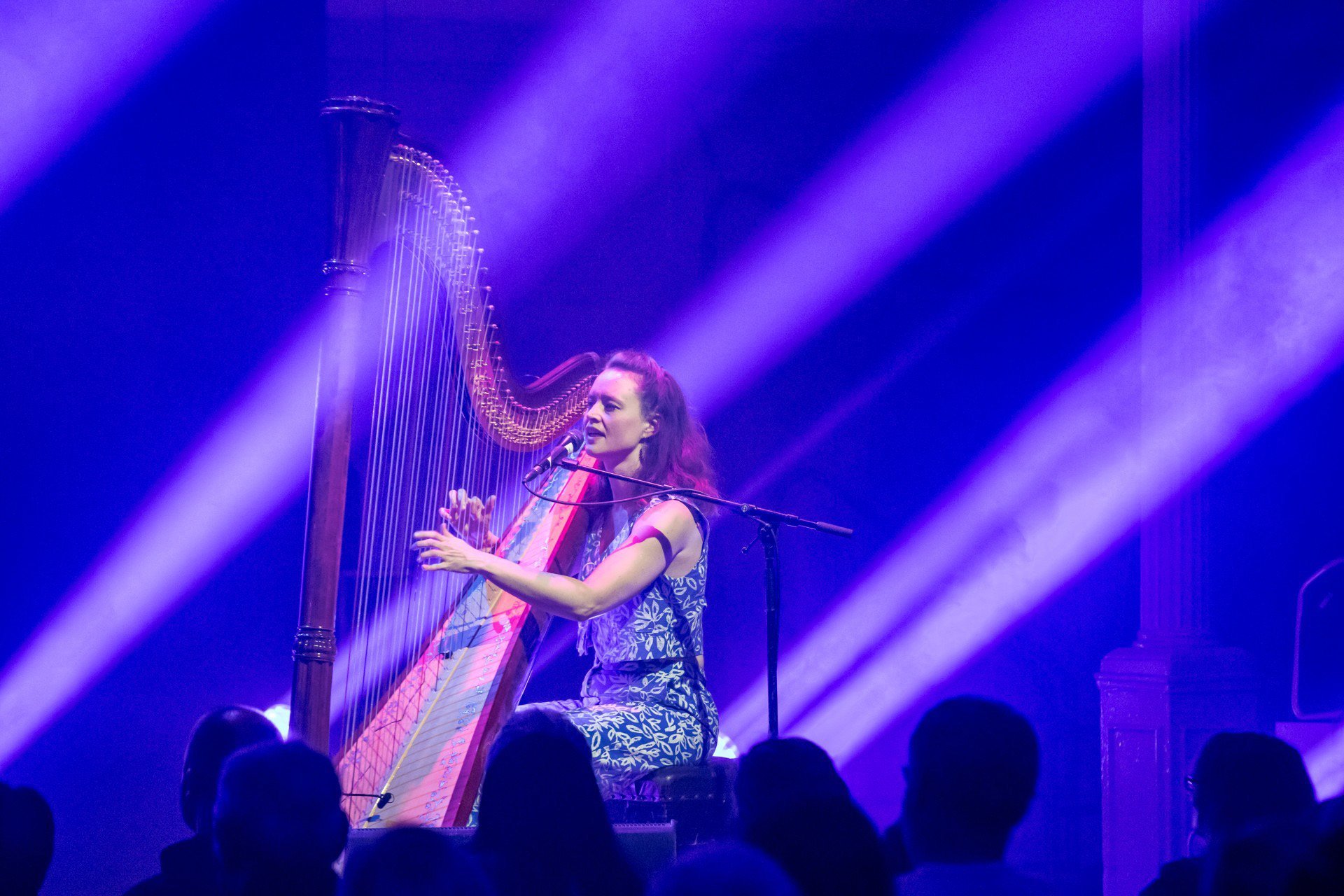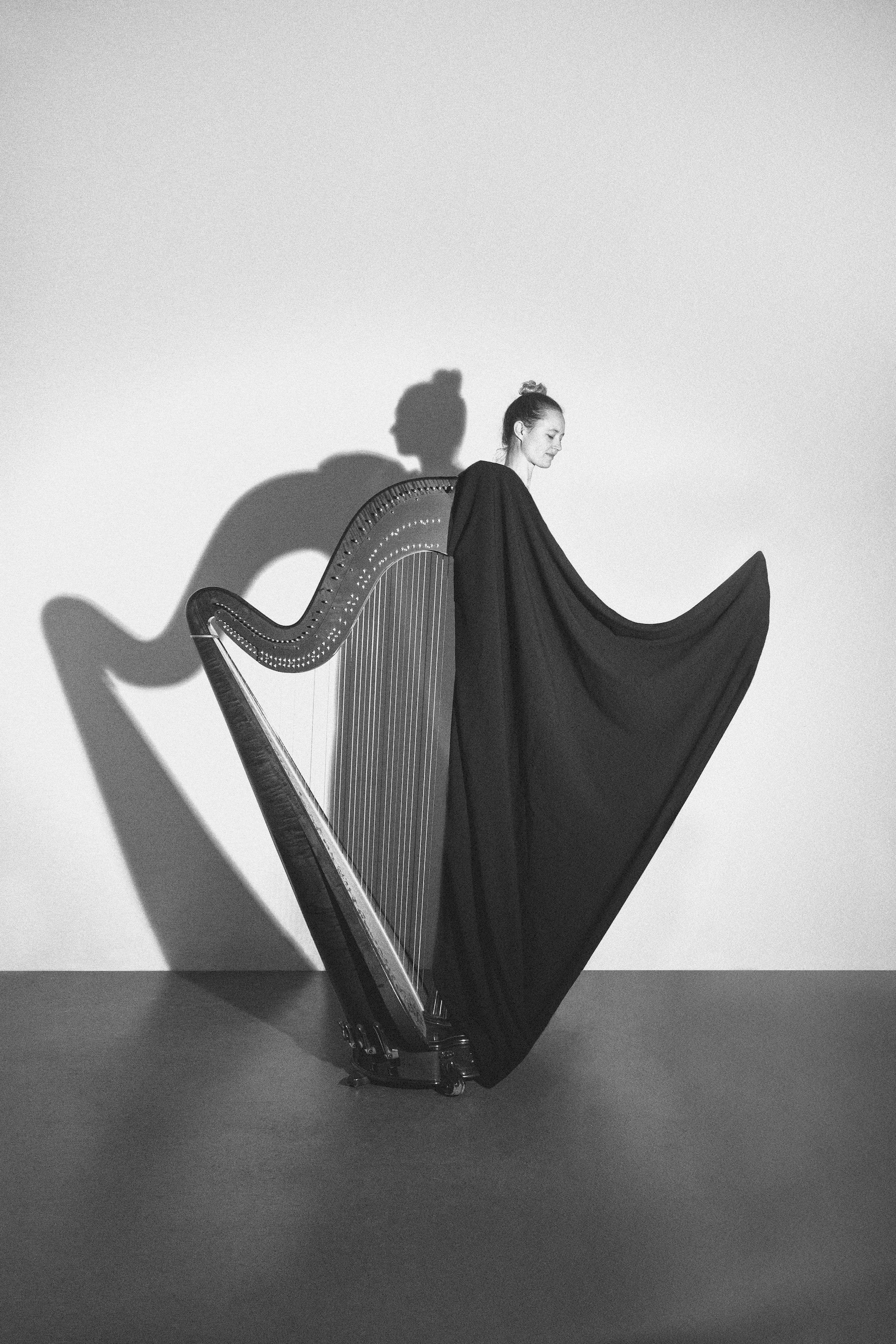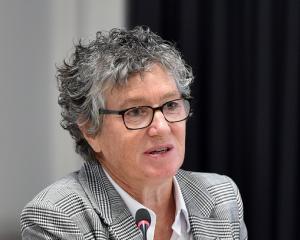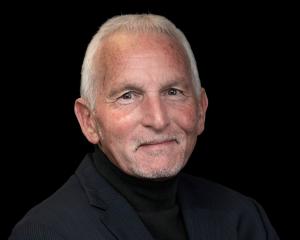
One of Esther Swift’s favourite things about music is how sociable it is.
A harpist with a successful solo career, Swift grew up with folk music, studied classical music and has worked with jazz and chamber musicians around the world, including Vietnam, Malawi, Brazil, Mongolia, Germany and New Zealand.
"It was actually basically my first solo tour completely alone outside of the UK, going to New Zealand in 2018. I kind of just went on this big adventure.
"It was just such a warm, lovely experience and everyone is just so kind and generous. And it really got me hooked to solo in general. And I haven't stopped since then."
She is now on her fourth visit to New Zealand and this time will be performing music from her debut solo album Expectations of a Lifetime, released in June, which she describes as a culmination of all her work to date.
"The title track for that is about my community and it's about friendship and the power of that. And really, all of the expectations and the pressures that we put on ourselves throughout our whole lives really mean nothing, I think, without your community."
Swift’s community has played a big part in her life. It was having a harpist next door in her hometown of Peebles willing to let a neighbour’s child have a go that got her hooked on the harp in the first place.
"In Scotland there's quite a big tradition of the clarsach, which is the Gaelic word for the harp. I remember going to hear her and just thinking it was just absolutely just the most beautiful sound ever. And as soon as I started playing it, I just felt so comfortable. I think it's just such a beautiful, natural sound."
Growing up, though, it was the violin that was her main instrument, even though she got to play the harp at her music school. But, given the size of the harp, she could not really start playing seriously until she was big enough, which was when she was 12 years old.
Swift discovered that, unlike the violin, the harp immediately sounded nice when she began playing.
"I had a lot of incentives to play it. And I was kind of not sure whether I would go on to study the harp or the violin. But I did decide to to pursue the harp in the end."

"I suppose some rhythms now come quite intuitively. And other rhythms I find more difficult, like, for example, if I'm doing more of a complex rhythm in my voice and I'm playing a simpler rhythm in the harp, that comes quite naturally. But if it's the other way around, it becomes a bit more challenging.
"But it is a question of listening in a different way and multitasking, sort of like compartmentalising your voice as an instrument and then both hands on the harp as well. So it's kind of working in a trio it feels like sometimes."
Singing is something she has always done and from age 8 to 10 she was in a choir. That experience stuck with her and she wrote a whole EP when she was older about learning how to sing and recorded it in the cathedral she originally sung in.
"It was such a great experience, and I wrote all the music in the cathedral, too. So I sort of had a mini residency there, which felt really nostalgic and cathartic."
Performing with violinists and other musicians has also helped her be more aware of the different roles when she is playing. Learning classical harp was an important part of her education and helped develop discipline. She did some orchestral playing in her 20s but discovered what really drives her is being able to be creative and express herself and her own personal experiences.
"Getting a chance to really focus on that over the last few years has been incredible. And being encouraged to work on that whilst working with other people who do that also has been really, really great."
It has enabled her to build a solid reputation in the United Kingdom, which in turn has opened up lots of opportunities to collaborate with people who inspire her music.
"I live such a rich and interesting life where I meet so many beautiful, different people all the time, which then feeds into my music."
Swift also writes her own music and has a "side hustle" writing music for others. She has recently been commissioned by Celtic Connections, Chamber Music Scotland, Manchester Jazz Festival and The Edwin Morgan Trust.
"I love writing for other people and just kind of working out their character and putting that into the music as much as I can."
Writing came naturally to her, as she was always interested in where the music she was singing and performing came from.
"So I started trying out my own sounds and I was encouraged to do that from, really just from the word go. I always wanted to do that."
Her first harp teacher in Peebles has told her how she used to go to lessons and just sing and play songs that she had written about butterflies and flowers.
Nothing has changed from that time, as her music is still inspired by nature as well as functional harmony and folk music. She lists Bjork, Anna Meredith (a Scottish musician), Kate Bush, Schubert, Knorr (a band from Los Angeles), Lewis Cole, Genevieve Artadi and - from the folk music scene - harpist Katrina Mackay as among her many influences.
"Bjork for her unique voice and her orchestration, her production. I think she's undervalued for her incredible production on her own music and her orchestration. Kate Bush for her chords and her approach to structure in her songwriting. I could go on."
Also important to her is her Scottish culture and community.
"I'm very lucky to live in Scotland, which has this beautiful, thriving folk music tradition and culture that goes with it. And I have an amazing group of friends in Scotland who are just like so engaged in their community and in nature and in ... the arts.
"We have all of these discussions about those things and how to kind of serve our arts community better. And I think it's really important, you know, to have close community during these challenging times in the UK."
One of those community members is Scottish violinist Catriona Price.
"‘It's been such a joy to work with her now for 20 years. It feels crazy to say that. And I also play with a group called Clouds Harp Quartet. And I write all the music for that too, but I've known them since college as well, since music college. And that'll be 15 years of collaborating with them. They're very special musicians."
She also works with songmaker Kirsty Law and author Kirsty Logan on creative projects combining storytelling, composition and song. They have been commissioned by the Edinburgh International Book Festival to do a new work for it this year.
"I went to Vietnam for a month to collaborate with 30 Vietnamese musicians, which is amazing. I did a big tour in Germany this spring, actually. And I had a commission with a wonderful festival to write a piece about the fishing industry in Scotland earlier this year, too. So it's been a busy year."
All of those influences are apparent in her album, which she describes as being "pretty diverse". She recorded it with a string quartet, drums, trombone and piano although she is not bringing those musicians with her.
"I’ll just play everything myself instead."
Luckily she was funded by Creative Scotland to put together the album, which enabled her to put the time and energy into her music, but it was what came next that was the hardest.
"It's just a back-breaking experience being an independent artist and putting music into the world, especially during these times of social media being so important and influential."
And no, she does not travel the world with her harp, it is too big and too precious.
"It's not worth taking them on the plane. I have taken my harp once on the plane. And I won't do it again. It was a bit scary."
Instead, like a pianist, she borrows or rents harps wherever she goes. To make that process easier, eight years ago she set up a Facebook group called the Harp Borrowing Club to help match up harpists with instruments.
"I didn't really think it would be as successful as it is. But now it's got like 5000 members or something. So I can meet harpists in pretty much anywhere in the world and arrange to borrow or rent their harp."
Like a pianist it means adjusting to an instrument she has never played before, something she often really enjoys, especially if it is an old instrument. She borrowed one on her last tour to New Zealand that its owner described as being old, with a few problems.
"But I loved it. It was so characterful. And it ... definitely affected how I played on that tour. I really enjoyed playing a new instrument and getting to know it. And it kind of revived the tunes I was playing. I think it brought out a certain character in the tunes that wouldn't have been brought out otherwise."
Harps, unlike violins, deteriorate with age due to the metal in their bodies which causes the wood to twist and crack, putting a lot of tension on the soundboard.
"So I do love playing old harps, because they've been played a lot. So they feel alive. And the resonance is always really kind of special.
"And you can just feel when a harp has been well loved and well played."
New Zealand initially came on her radar after a friend and musician moved to the country and encouraged her to come and tour.
"I was just in love with the place immediately. And I can't resist coming back. I just love it. And I've got lots of great friends there now ... very special people there who I kind of feel ... [are] my family at the other side of the world."
TO SEE:
Errick’s Dunedin
November 3












